5. My Dinner With Andre
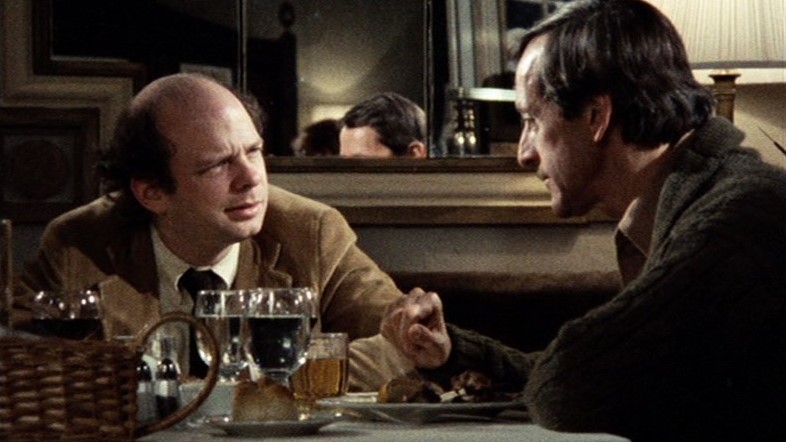
A movie that’s a huge inspiration on the works of Richard Linklater (who’s, like, really into films about people talking), “My Dinner With Andre” is the quintessential dialogue chamber piece. A 2-hour long dialogue scene through which the two characters unravel and discuss a plethora of issues and themes, this film by Louis Malle is a masterclass in acting and writing.
Andre Gregory has surfaced again after a 5-year stint of touring Europe and Africa with a group of alternative theater; prior to that he was a theatre director in New York. His remarks on his lifestyle and professional trajectory begin to slowly be rebuked by Wally Shawn, Andre’s longtime friend who claims it to be impossible for most people to live life the way Andre lives.
The film is a long inconclusive therapy session for the two characters. They discuss their life conceptions and worldviews in a way that neither are able to reach a middle ground or any sense of resolution. They spill a lot of their hearts out (though not in an emotionalized or manipulative fashion – this isn’t an episode of “In Therapy”, mind you) but there is no epiphany to be reached, no great conclusion after which at least one of the characters changes who they are to some degree.
“My Dinner With Andre” is filled with excellent dialogue and fascinating tidbits, all delivered with incredible subtlety and in a convincing manner. It’s just that the intimate dialogue doesn’t amount to change, only further introspection.
4. Le Quattro Volte
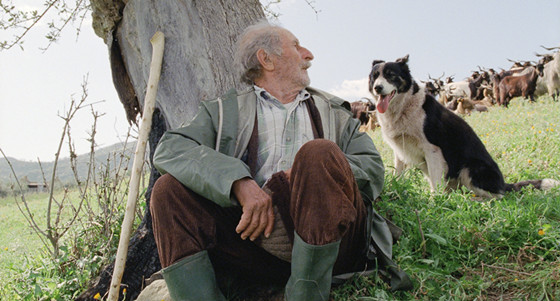
A goatherd walks his goats through steeps and mountains. The wind blows leaves of green grass around him. A young goat is born, and we follow his life up close. The same goes for a fir tree, which gets chopped down and turned into wood to fuel fire at peoples’ homes.
Michelangelo Frammartino’s metaphysical film is a surprisingly short and economical feature. Inspired by Pythagora’s concept of “metempsychosis” – that is, the idea that souls can migrate from body to body, in several different realms -, the film focuses on four of such realms, and shows how they are connected.
Slow and deliberate, “Le Quattro Volte” is not so much a test of the audience’s patience as it is a careful and sensitive examination of life in a small Italian town, be that life of human, animal or vegetal nature. In the end, “Le Quattro Volte” will be a unique viewing experience, from which one leaves considering life and nature’s intricate ways of expressing and communicating between themselves, even when there appears to be nothing special going on.
3. Naked
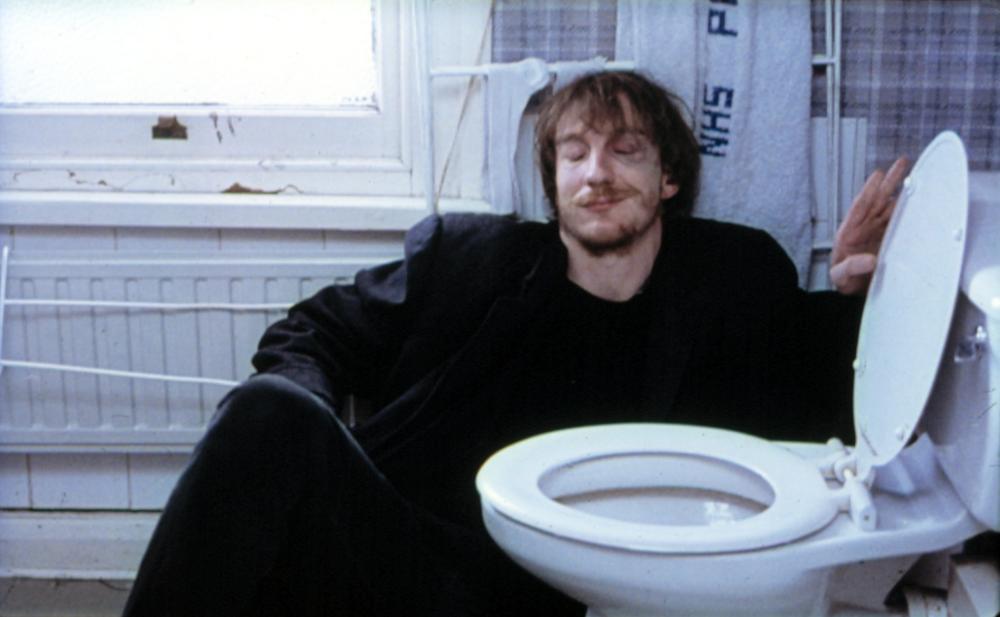
Featuring what is arguably one of the best performances in cinematic history, Mike Leigh’s “Naked” is a masterpiece of nihilistic cinema.
Focusing on Johnny, a desolate motor-mouthed intellectual with a penchant for endless tirades on his worldview and (mis)conceptions of humanity, “Naked” is quite a tough film to watch.
Although it does feature somewhat graphic rape and beating scenes, what truly makes “Naked” so uncomfortable a film is how nonchalant Johnny is about his predicaments. He’s lost in life; there are no aspirations, no goals or purpose in his days.
His life has boiled down to endless wandering and one-sided conversations with random people who he obviously finds inferior to him. His bloated, desperate confidence in his superiority makes him believe he’s invulnerable and that people want – or have – to listen to his endless ramblings.
David Thewlis’ performance is a miracle of self-degradation and nihilism, and Mike Leigh’s strong direction further sells home Johnny’s despair and depression. He’s a near sociopathic wanderer, a drifter by nature.
The way the film is structured, following Johnny’s purposeless routine where nothing truly impactful happens – even him getting savagely beat up has no moral consequences to be seen – is essential to the story. Nothing happens because what could happen to shake Johnny out of his inertia? What could happen to make him change his own nature?
2. The Turin Horse
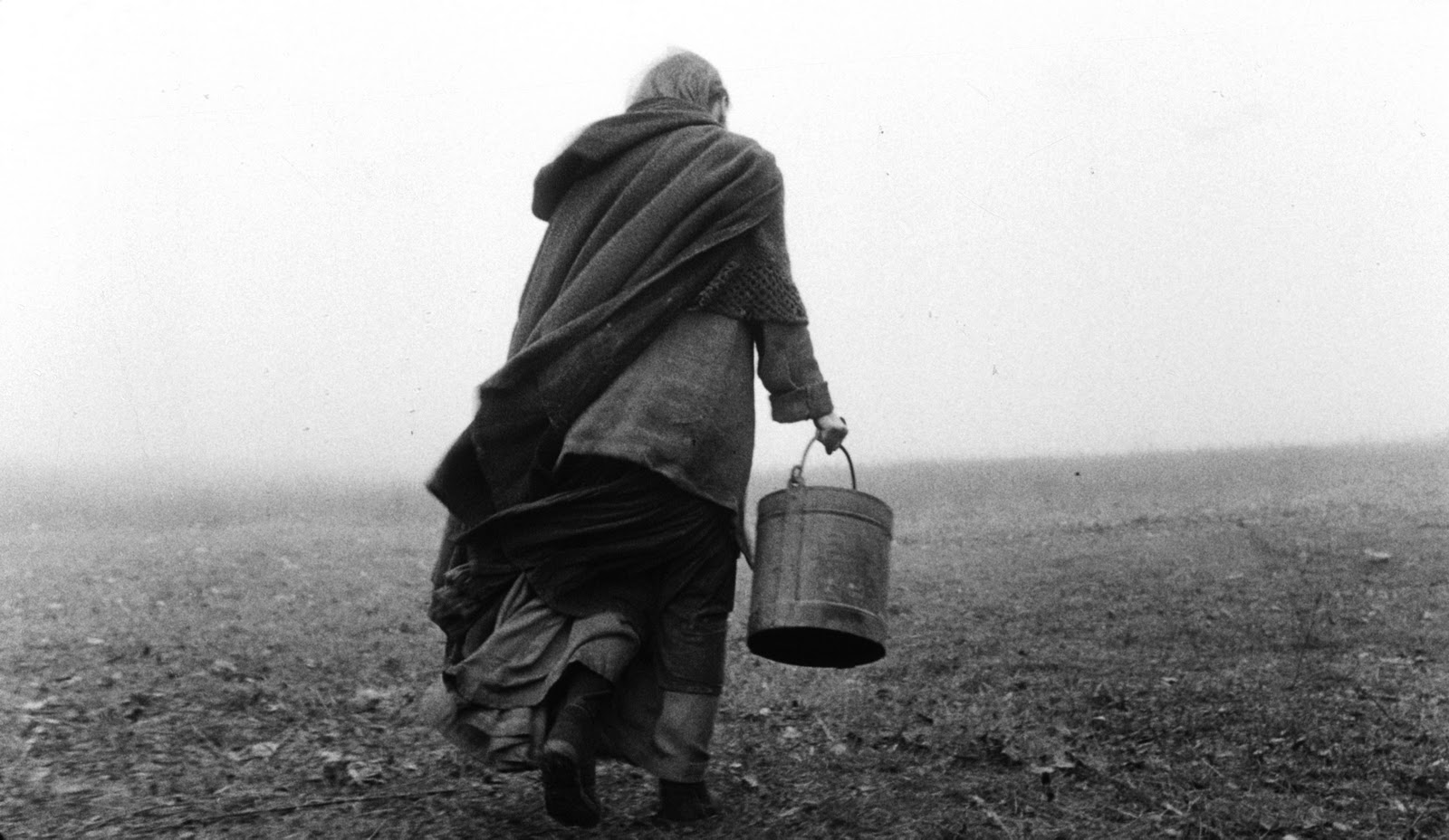
The final film from the master of slow cinema, Béla Tarr’s “The Turin Horse” is about as atmospheric and apocalyptical a movie can be. Focusing on the plight of a father and his daughter in a (supposed) Italian rural house as the end of days approach, “Horse” is slow – and I mean SLOW -, patient, repetitive, windy and deliberate film.
Described by Tarr as his own version of apocalypse – one for which mankind is responsible – the film is sure to test many a viewer’s patience. The couple’s routine is the same every day. They wake up, the daughter helps the father with his clothes, the father goes out with the horse, the daughter picks water from the well and bakes potatoes, the father returns and eats with his daughter. That’s about it for most of the 150 minutes of the film’s runtime. Some minor occurrences are bound to shake the repetitiveness of the feature, but the overall gist is the pure and extremely simple shape of the character’s lives.
Meanwhile, a violent wind blows outside. It blows increasingly stronger as each day goes by. A friend shows up with news of destruction but soon leaves. A group of gypsies drain the well but are drawn away by the father. The lights begin to grow ever dim as the father and daughter seemingly resign to their fates.
“The Turin Horse” is unique and exquisite. A beautifully depressing (or depressingly beautiful) film, it is sure to leave a lasting impression on the viewers who manage to follow through to the end credits. No matter your take on Béla Tarr, this movie’s atmosphere will suck you in and follow you long after the film is over.
1. Tokyo Story
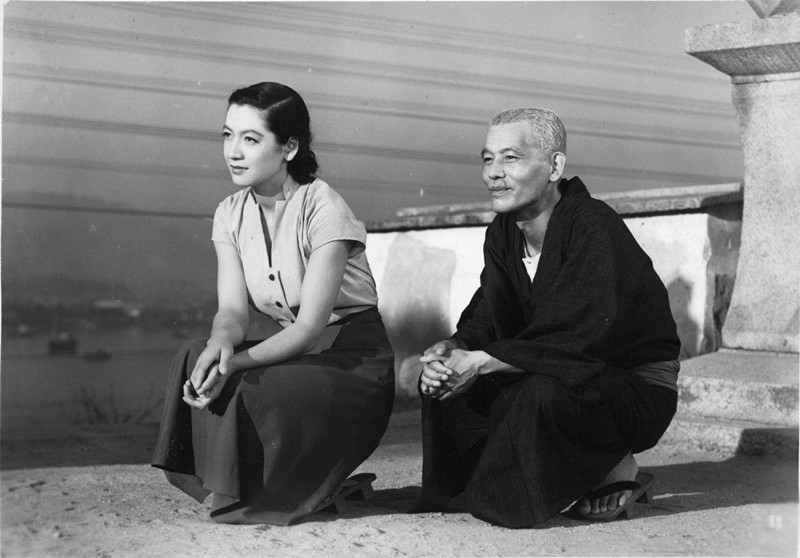
Look for a director who’s made more films about people sitting around and eating than Yasujiro Ozu and fail miserably. One of the greatest auteurs in cinematic history, Ozu has crafted many masterpieces of subtle, sensitive cinema. To many critics and admirers alike, his crowning achievement may very well just be 1953’s seminal “Tokyo Story”.
A story of an elderly couple who travel to visit two of their children in Tokyo, the film is basically a greatest hits compilation for Ozu, as it features many of his trademarks elements. An uneventful tale of familial relationships mainly told through long sequences of dialogue and extremely subtle, elegant exposition, “Tokyo Story” is a beautiful film.
A cautionary tale of how little we care for our elderly parents, and for how much they have sacrificed themselves yet still manage to treat us kindly, it is a supremely sensitive film that has left many generations weeping and sobbing.
Ozu is a kind of filmmaker whose films touch the deepest parts of human emotions, parts which makes us realize our smallest imperfections and offer ways for us to change them, and ennoble ourselves in the process (as Roger Ebert himself said).
“Tokyo Story” is no different; a beautiful masterpiece that shows so much of life and humanity while still being economical and subtle to an extent that you feel nothing is really happening on screen that merits extreme attention. But, oh, how wrong are you for believing so.